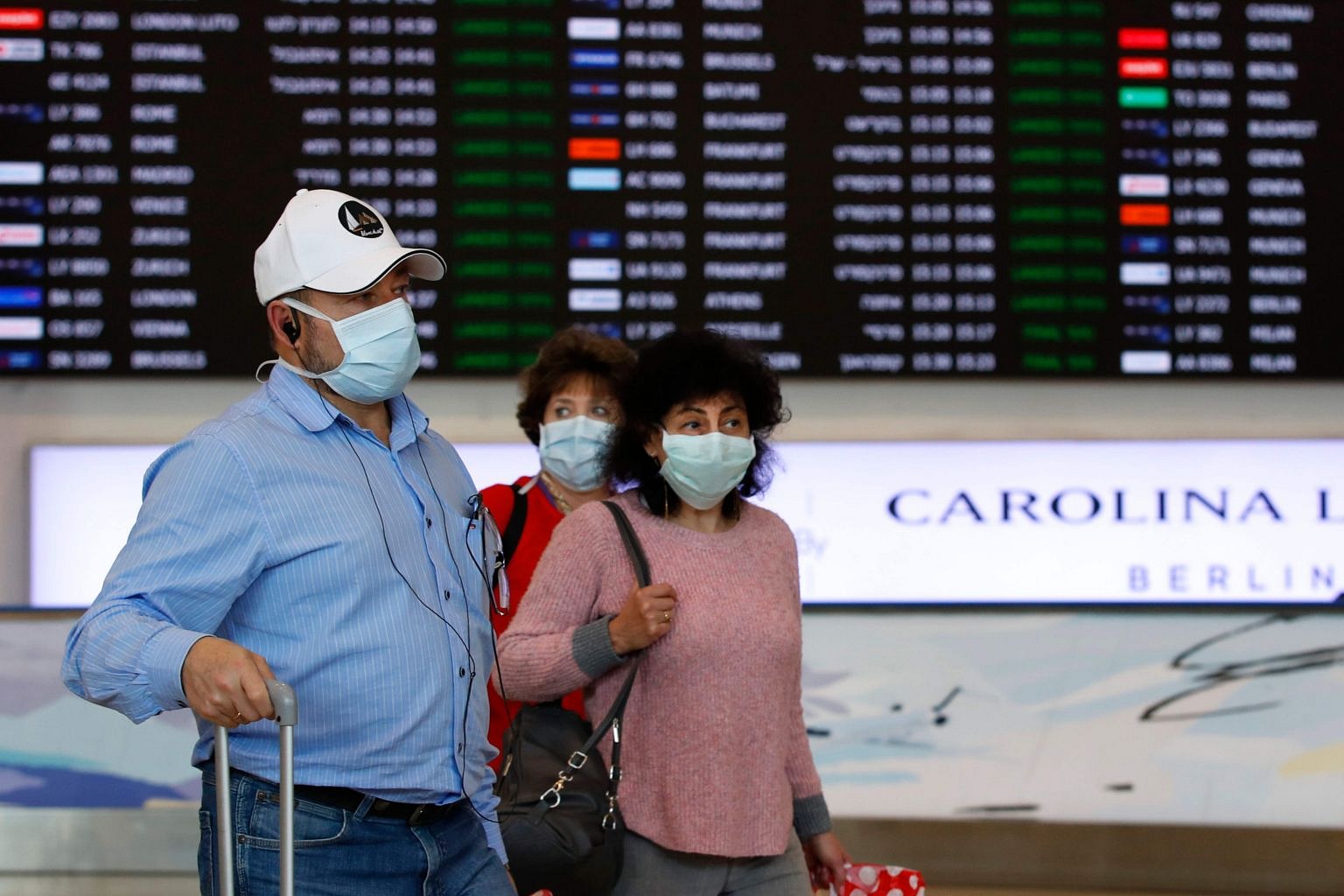Israel asks citizens not to travel abroad; WHO raises risk level to highest
Sign up now: Get ST's newsletters delivered to your inbox

Passengers wear protective masks at Ben Gurion International Airport, near Tel Aviv, on Feb 27, 2020.
PHOTO: AFP
JERUSALEM • The Israeli government has asked its citizens to reconsider plans to travel abroad as the coronavirus spreads to more countries across the globe.
"The Health Ministry is calling on the public to consider the necessity of travel abroad in general," the ministry said on Wednesday.
It also advised against holding or attending international gatherings.
Israelis who visited Italy are required to enter into quarantine upon return, the ministry said. Italy is the first non-Asian country added to the ministry's list of destinations.
"The assessment is that there is a high probability the disease has already spread to other regions of Europe and many other places in the world," it said.
The ministry had already instructed Israelis returning from Japan, Hong Kong, Macau, Singapore, Thailand and South Korea to go into isolation at home for 14 days.
Two Israelis who returned home after being quarantined in Japan on the Diamond Princess cruise ship are the only confirmed coronavirus cases in Israel, and the ministry has readied quarantine facilities should more infections occur.
In Jerusalem, the Roman Catholic authorities have instructed their priests to give communion by hand only, rather than placing the wafers on worshippers' tongues, and to empty holy water fonts - as precautions against the spread of virus.
The World Health Organisation (WHO) yesterday upgraded the global risk from the virus to its highest level, saying the continued increase in cases and countries affected was "clearly of concern".
"We have now increased our assessment of the risk of spread and the risk of impact of Covid-19 to very high at global level," WHO chief Tedros Adhanom Ghebreyesus told reporters.
"We do not see evidence as yet that the virus is spreading freely in communities. As long as that is the case, we still have a chance of containing this virus," he said.
"The key to containing this virus is to break the chain of transmission," he said, emphasising the importance of individuals taking precautions to stop contagion. "Our greatest enemy is not the virus itself, it is fear, rumours and stigma, and our greatest assets are facts, reason and solidarity," he added.
Dr Tedros also said that more than 20 vaccines were in development globally and several treatments were in clinical trials, with results expected in a few weeks.
Dr Michael Ryan, head of the WHO's health emergencies programme, said it was unhelpful to ask if the outbreak could now be considered a pandemic.
If the WHO called it a pandemic, "we are essentially accepting that every human on the planet will be exposed to that virus. The data does not show that," he said.
"If we don't take action... that may be a future that we have to experience," he said, adding that "a lot of the future of this epidemic is in the hands of ourselves".
The rapid spread of the virus has raised fears of a pandemic, with at least 17 countries reporting their first cases yesterday.
Mainland China, where the virus was first detected late last year, reported 327 new cases as of the end of Thursday - the lowest since Jan 23 - taking its tally to 78,824 cases with 2,788 deaths.
South Korea reported 571 new coronavirus cases yesterday, its biggest daily increase in infections that takes its total to 2,337.
Some 840 cases are tied to a branch of the Shincheonji religious sect in the south-eastern city of Daegu. The outbreak has killed 16 people in the country.
BLOOMBERG, REUTERS, AGENCE FRANCE-PRESSE


